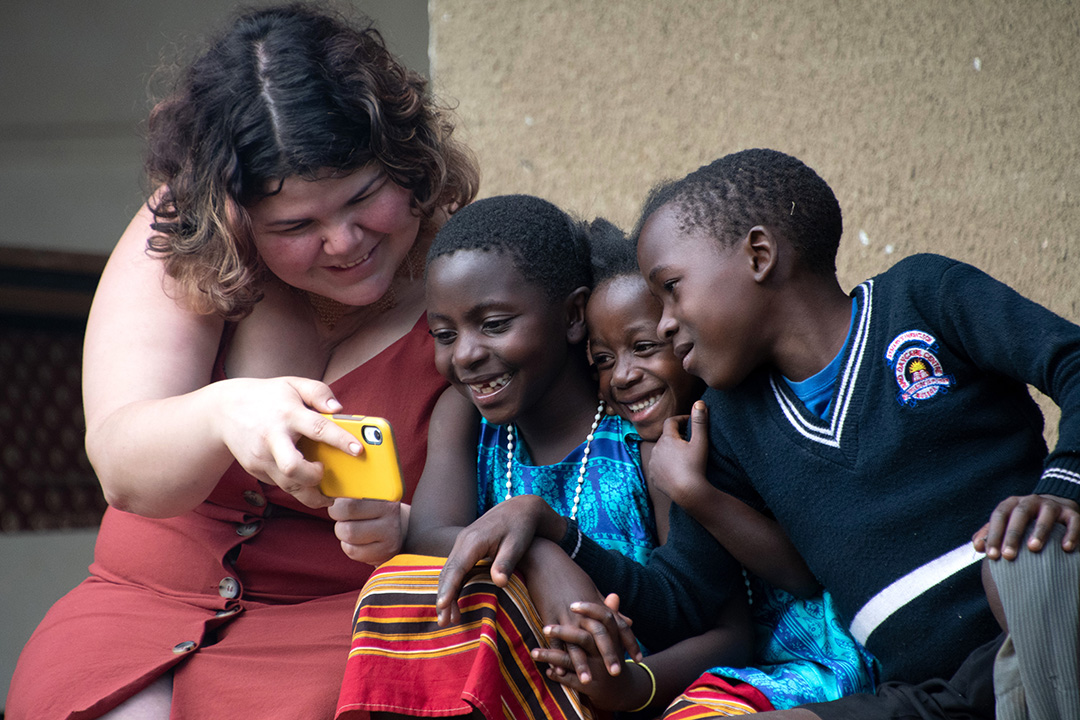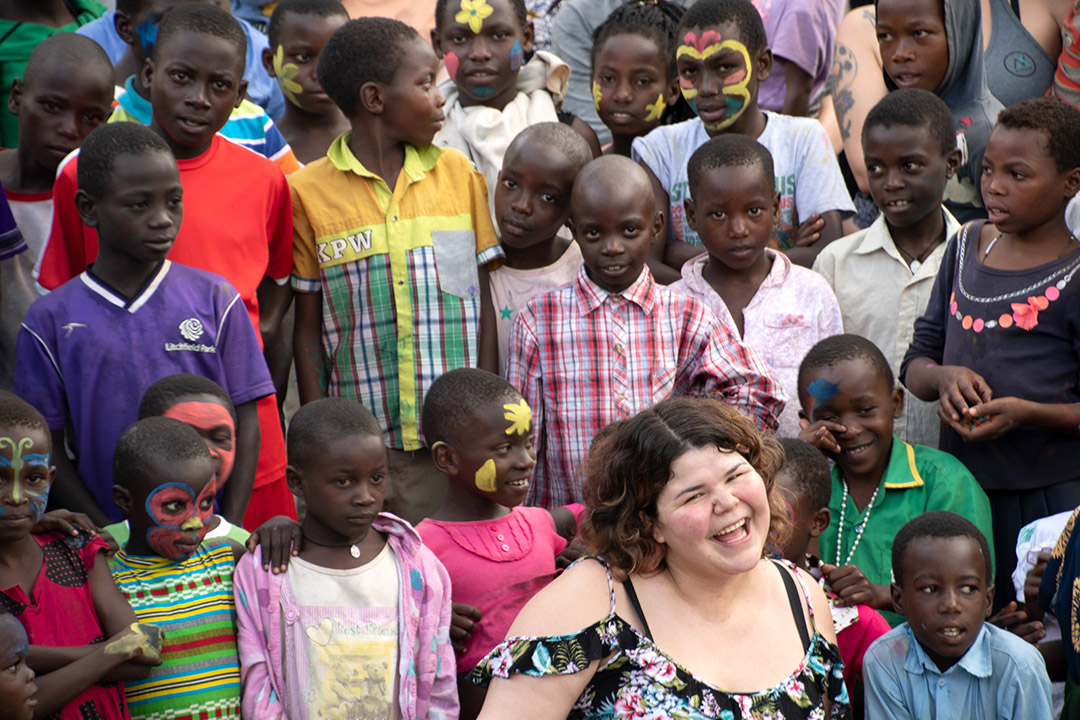
USask students, staff lead Ugandan fundraising exhibit
For University of Saskatchewan (USask) master’s student Zoey (Pricelys) Roy, last year’s trip to Uganda was a life-changing look at the challenges people face half a world away.
By James ShewagaWith the support of fellow members of the USask community, she is doing something about it.
Roy has teamed up with College of Arts and Science undergrad student Nico Trick and USask professor and former School of Environment and Sustainability (SENS) executive director Dr. Irena Creed (PhD) to present an exhibit of poetry and photography titled Stories of Love and Kinship to help raise awareness and funding for a health care initiative for the people of Kanyawara, Uganda. The exhibition runs from Feb. 6-10 at Bridges Art Movement in Saskatoon with an opening-night reception (5:30 pm) and fundraiser to support a mobile health unit in Uganda.
“The mobile health unit there is currently not running and it takes about $10,000 a year to run, so that is what we are raising money for,” said Roy, who was a USask Indigenous Artist in Residence when she took part in the Queen Elizabeth II Diamond Jubilee Scholarships (QES) program field school in Uganda last spring.
“As an Indigenous person who grew up in Saskatchewan, I know what it’s like to live close to the land. Indigenous people worldwide have an affinity with the land and what is most inspiring is that the people we met in rural Uganda live with the land. They understand it. They are nourished by it. They protect it. We are just trying to stand in solidarity with them.”
The exhibit, held in conjunction with USask’s third annual People Around the World (PAW) conference, features a collection of poetry from Roy and photography by Trick and Creed, now serving as associate vice-president of research at USask and special advisor to the president on sustainability.

Creed’s research work has taken her around the world, including last spring’s trip to Uganda when she took a number of students overseas as part of the QES program on planetary health, offered through SENS. The fusion of poetry and photography from that experience help tell the story of their work with the Ugandan people.
“The experience of working in some of the most impoverished places on the planet has made me want to bring the humanity into my science,” said Creed. “I could not see what I did—poverty, sickness because of lack of access to water, food, energy—and not do something about it. Each time I go, my desire to help these communities is renewed, mostly because of the friendships formed with the communities and the progress I see in helping these remote communities achieve the basic essentials that all people of the world deserve.”
In the rugged region of the Kibale National Forest in western Uganda where the QES students volunteered their time last year, there is an ongoing challenge to balance protecting the wildlife in the park with the need to feed the growing population of the local Batooro and Bakga tribes who live adjacent to the park and can no longer rely on the forest for water and food. Creed and Roy said funding the mobile health unit—featuring an ambulance from Canada—is critical to providing health care services for the local communities while also providing education about why it is important to protect the park.
“The challenge is marginalized people living on the margins of one of the most biodiverse protected areas on the planet,” said Creed. “The communities used to be able to access the park for food, energy, medicine, but because of increasing population growth and shift from subsistence to industrial use of the resources from the park, they are no longer allowed to do so. This compromises not only their health but their well-being.”
“The people who call this region home are basically farmers and they have cash crops and food crops, but the cash crops take up more water than the soil really has to offer,” added Roy, who will be defending her thesis to officially complete her USask Master of Public Policy in the next few weeks. “So, with climate change, the less resilient plants that are the food crops, are least likely to continue. So, sustenance is a real problem and that is why health prevention and disease prevention and funding the mobile health unit is so important.”
The PAW 2020 conference is scheduled for Feb. 6-7 at USask’s Marquis Events Centre. United Nations Assistant Secretary-General Nikhil Seth, one of the keynote speakers, is among those expected to be in attendance for the opening night reception for the Stories of Love and Kinship art exhibit and fundraising event on Feb. 6.
More information on the PAW conference and the art exhibition is available here.

